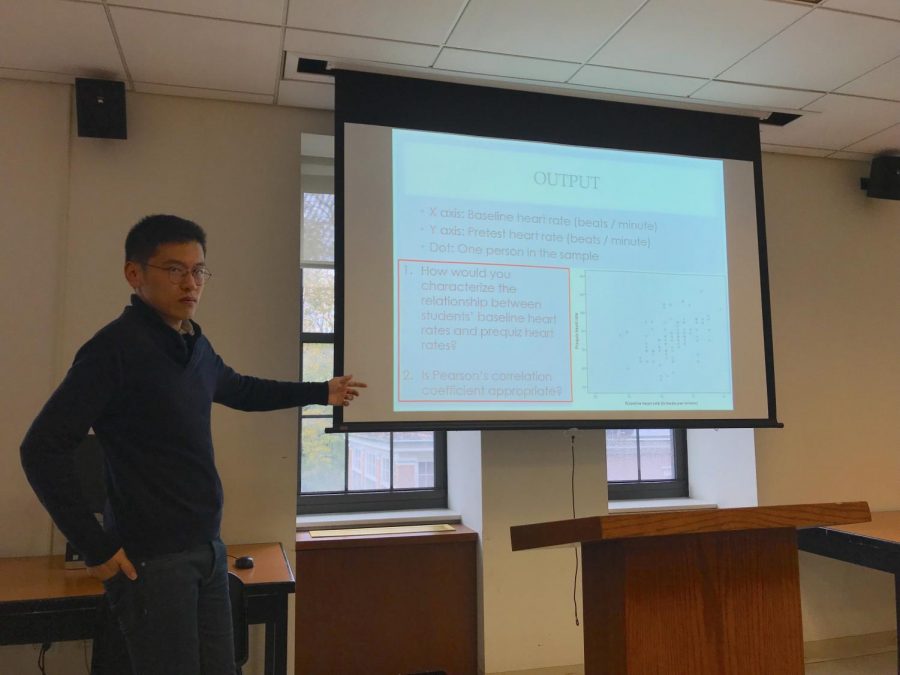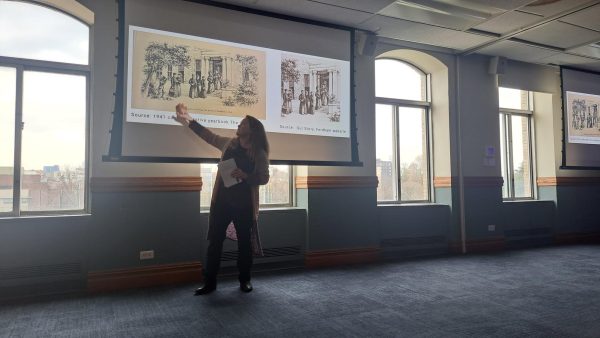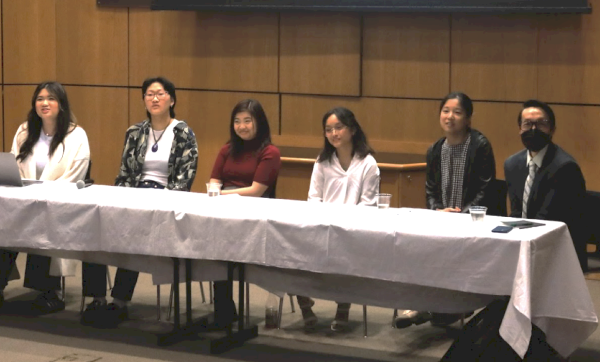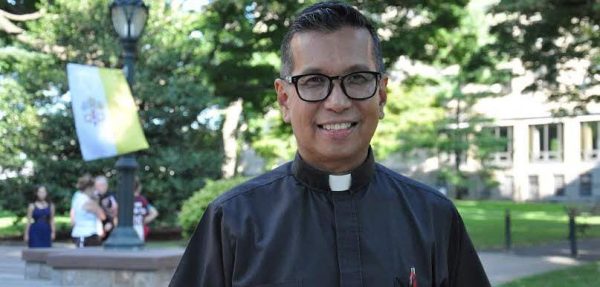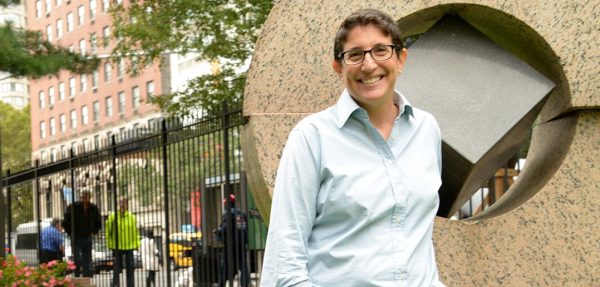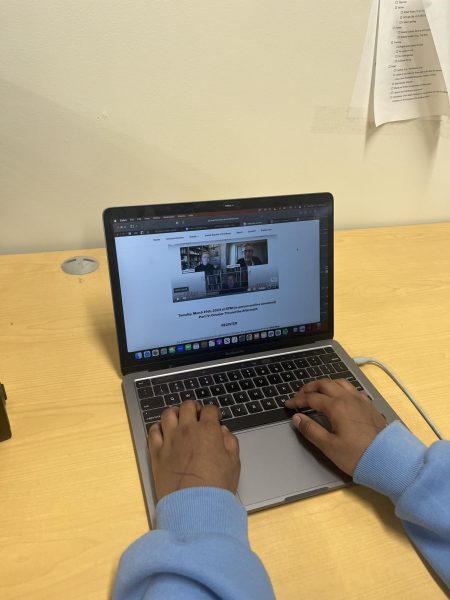Humanities See Drop in Students, Fordham Follows National Trend
By Joe Esposito
Over the past decade, national trends show students at major universities are studying the humanities less, and the same is happening at Fordham. In the fall of 2008, 595 students at Fordham took a major that fell within the field of the humanities, according to the Office of Institutional Research. In the fall of 2017, that number dropped to 482.
On a nationwide scale, the humanities, and history in particular, have seen a drop in enrollments since 2008, according to David Hamlin, Ph.D., professor of history and chair of the department at Fordham. This downward trend for the humanities is happening at Fordham too, according to Hamlin.
“There is this grand nationwide trend. It’s playing out on Fordham as well,” he said.
Several areas in the humanities started to decline in the early 70’s and have been declining since then. Since 2008, there has been an acceleration of that decline, according to Hamlin.
The drop-off in humanities students after 2008 can be attributed to the economic recession of that year.
“The continuing fallout from the 2008 financial crisis has impacted the humanities by raising questions about the financial reward, the return on investment, if you will,” Hamlin said.
“Students and parents were very worried about employment. They wanted to see a direct connection between what you are doing in the college classroom and employment.”
This anxiety over whether or not one would be able to find work after graduation has been a factor in pushing down enrollments, according to Hamlin.
“The essential challenge for the humanities since 2008 has been the question about the relationship between a humanities major and the job market,” he said. “I have seen basically two responses to that.”
Hamlin said one response is that a humanities degree prepares you for the job market. In his view, the humanities teach how to deal with information, make a coherent argument and effectively communicate that argument to different audiences.
“This view makes the argument that, in fact, we do inculcate skills that are valuable in the workplace,” said Hamlin.
He also presented the view that as long as college is viewed as exclusively preparing for the job market, the humanities are never going to recover.
“This argument makes the case that, in reality, what the humanities are trying to do is something much more fundamental; it’s about teaching ethics, morality, citizenship,” said Hamlin.
The connection between education and the job market is a secondary issue for education in this case.
Fordham tries to value the humanities as being essential for the development of a good life while also preparing students for a professional future, according to Hamlin.
According to Christopher Dietrich, Ph.D., director of American Studies and the chair of the Core Curriculum Committee, the humanities at Fordham are valuable.
“What humanities and social science majors get at Fordham is the ability to tackle important problems in creative and responsible ways; employers in all sorts of fields value that,” Dietrich said.
Amidst the decline, Hamlin said there is hope for the future. The history department has seen an increase in major declarations in the past two years, according to Hamlin.
“We are not seeing a continuation right now of that straight-line decline; we are seeing a slight tick up in history majors,” he said.
This increase in history enrollment would suggest perhaps there is a change, according to Hamlin.
One hypothesis for the recent change is that we are farther away from 2008. Right after 2008, there was substantial anxiety for young graduates entering the job market. Young graduates today are not having the same difficulty finding jobs. While employment anxiety is still present, it doesn’t match up with what is happening on the job market right at this moment, according to Hamlin.
“The college graduate unemployment rate is quite low,” he said.
Because these positive numbers are very recent, it is hard to tell how permanent the change is, according to Hamlin.
“The numbers are so recent; it is hard to tell if it is a blip,” he said.
Dietrich also said he sees hope in the humanities.
“There have been crises in the humanities before and because of its intrinsic value, humanistic disciplines have always survived,” Dietrich said.
Fordham is one of the top 1040schools for receiving National Endowment for the Humanities (NEH) grants, ranked 83rd by The Chronicle of Higher Education.
According to Beth Torres, a humanities grant officer for the Office of Sponsored Programs, Fordham was ranked so highly because of a challenge grant of $500,000 received by George Demacopoulos, Ph.D., in 2013. To make the list, at least a million dollars is needed.
“That put us over the top,” said Torres.
Some grants are used for course development, but most are used for individual or collaborative research, according to Torres. There is no clear connection between Fordham’s NEH grants and engagement in the humanities.
It remains to be seen whether Fordham’s humanities enrollments will be affected by the funding.

